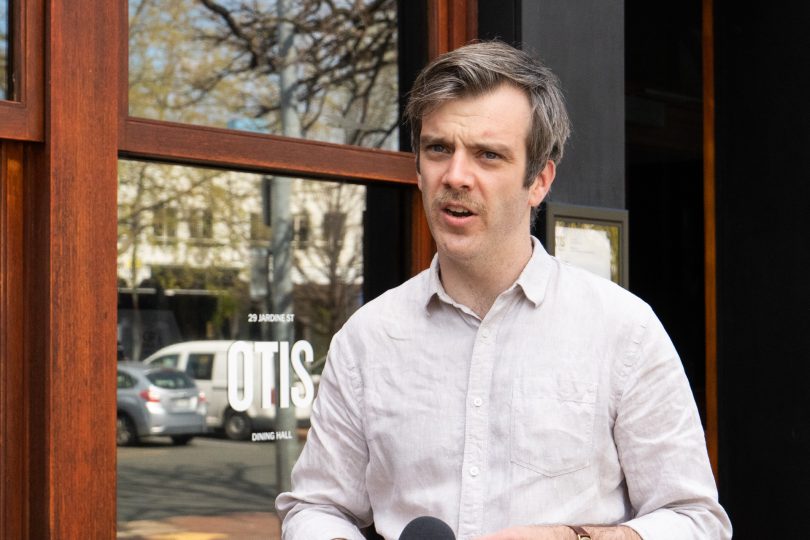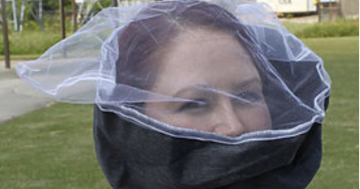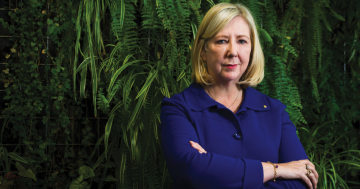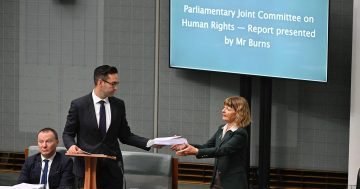
The ACT’s new pandemic management legislation is being publicly scrutinised through a series of hearings. Photo: Michelle Kroll.
A new public health bill intended to allow the government to manage COVID-19 after the current health emergency comes to an end has been criticised by members of the public and peak industry groups for its perceived overreach.
The proposed amendment, which was introduced in the ACT Legislative Assembly last year, would allow the government to continue to make public health directions such as mandating vaccines, masks, quarantine, and density limits.
However, the government would be unable to impose further lockdowns or order businesses to cease activity unless another public health emergency was declared.
The current public health emergency is scheduled to end in February.
But at this week’s first public hearing into the bill, the peak hospitality industry group was critical of the scope of the powers the government would retain.

AHA ACT General Manager Anthony Brierley said the proposed bill will give the government too much power. Photo: Dominic Giannini.
Australian Hotels Association ACT general manager Anthony Brierley said the ACT’s licensed hospitality and accommodation industry had been the “most adversely affected financially by the coronavirus restrictions that have been implemented since March 2020”.
“We believe powers such as regulating private and public gatherings, regulating the carrying on of activities, businesses and undertakings by introducing limits on density or capacity of an area preventing or limiting entry into the ACT are emergency powers and, as such, should be reserved for declared emergency periods,” he said.
“Put bluntly, if the health situation does not warrant a declared public health emergency then neither does it warrant the exercise of emergency powers reserved for a public health emergency.”
Mr Brierley said the powers retained in the proposed bill were “exceptionally broad” and could create a “shadow lockdown” which would impact hospitality businesses in particular.
The committee received more than 120 public submissions on the bill. Most of them were critical of the fact the government would retain the power to impose vaccine mandates.
Under the proposed bill, ministers would still be able to impose vaccine mandates although there would be additional safeguards required.
The Chief Health Officer must give advice to Cabinet and at least two ministers must jointly make the decision. Consultation with the human rights commissioner must also take place.
ACT Human Rights Commissioner Dr Helen Watchirs told the hearing the commission supported the intent of the bill to have “fit-for-purpose” legislation to manage COVID-19 in the future.
She said the proposed legislation was much stronger than what is currently in place, although more could be done.
Dr Watchirs was particularly concerned that the legislation did not provide review rights for vaccination directions and mandates.
“The commission considers that the failure to provide review rights for vaccination directions is a serious omission in the bill and should not be supported,” its submission to the inquiry read.
“In our view, express provision should be made in the bill to enable a person to seek review of a vaccination direction.”
The proposed bill would expire after 18 months and is currently the subject of an ongoing inquiry before it is debated in the Assembly later this year.




















